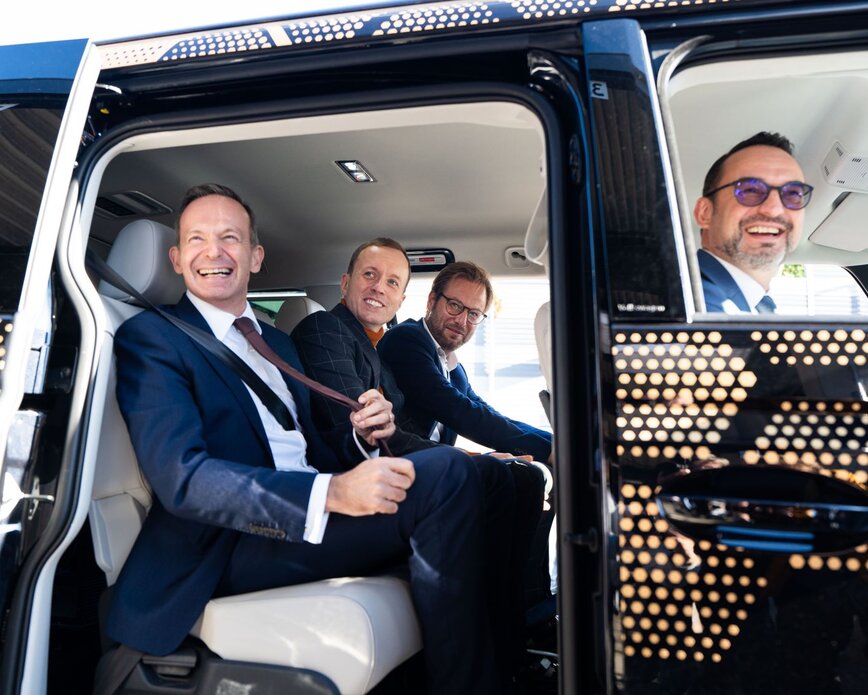Hamburg, October 23rd, 2023 - By 2030, there could be up to 10,000 autonomous shuttles on Hamburg's roads. That’s the goal of an agreement between the Federal Ministry of Transport and the Hanseatic City of Hamburg, which is now being brought to reality. A mobility solution will
be created in the city using a modern on-demand transport service that supplements the classic public bus and rail transport system with a new product and represents an attractive alternative to private cars. The ALIKE project will test a system with autonomous shuttles that can be easily booked using an app and that picks up passengers and takes them to their destination. The system meets strict safety requirements and is also intended to be scalable across regions, making it also suitable for rural areas. The aim of the pilot project is also to test the acceptance of autonomous driving services in practice.
The Federal Ministry of Digital and Transport is funding the project with €26 million. The Federal Minister of Transport Dr. Volker Wissing today presented the funding decision to the project consortium in the presence of Hamburg's Senator for Transport and Mobility Change Dr. Anjes Tjarks. The consortium brings together six project partners: HOCHBAHN as consortium leader; the on-demand service provider MOIA; vehicle manufacturers HOLON and Volkswagen Commercial Vehicles; as well as the Karlsruhe Institute of Technology (KIT) as research partner and the Hamburg Authority for Transport and Mobility Change (BVM).
Volker Wissing, Federal Minister for Digital Affairs and Transport commented: “I want people to continue to have freedom of choice when it comes to mobility in the future. Traffic in Germany will increase, which is all the more reason why we need new, smart forms of mobility that help us use our infrastructure efficiently. Autonomous driving can be a key to relieving congestion on the roads in major cities while ensuring mobility right up to the front door. The autonomous on-demand shuttle comes exactly when I need it and it takes me directly to my destination. The fully digital booking system makes it easy to book, trips can be combined, travel and costs are saved. I am delighted that in Hamburg we have found a courageous partner who is open to innovation in order to establish autonomous driving in Germany. I am convinced that this good idea will be accepted by the people of Hamburg and will find many imitators.”
Anjes Tjarks, Hamburg's Senator for Transport and Mobility Transition: “With this broad alliance for autonomous driving, we are implementing another point of the joint agreement with the federal government, with which we want to develop Hamburg into a model for mobility. Autonomous ridepooling is the missing piece of the puzzle between traditional public transport and the individual mobility needs of citizens. With it, we are creating a completely new pillar of public transport, an attractive alternative to private cars, and an essential prerequisite for being able to run the Hamburg-Takt and offer everyone in Hamburg a public transport service within five minutes. As a result, the public transport of the future will be even more convenient, sustainable and efficient. In keeping with the very successful Deutschland Ticket, autonomous vehicles will help us develop a corresponding Germany-wide offer in the future. My thanks go to Federal Minister Wissing for his support in advancing and further shaping the mobility of the future for all of Germany in the Hamburg region.”
The consortium partners will initially set up an overall system for booking and using up to 20 autonomously driving vehicles in public transport in Hamburg. Vehicles from different manufacturers will be integrated into an on-demand service to test them in operation and make them digitally bookable for users via apps. The project results are expected to lay the foundation for future commercial deployment and scaling of ridepooling services.









